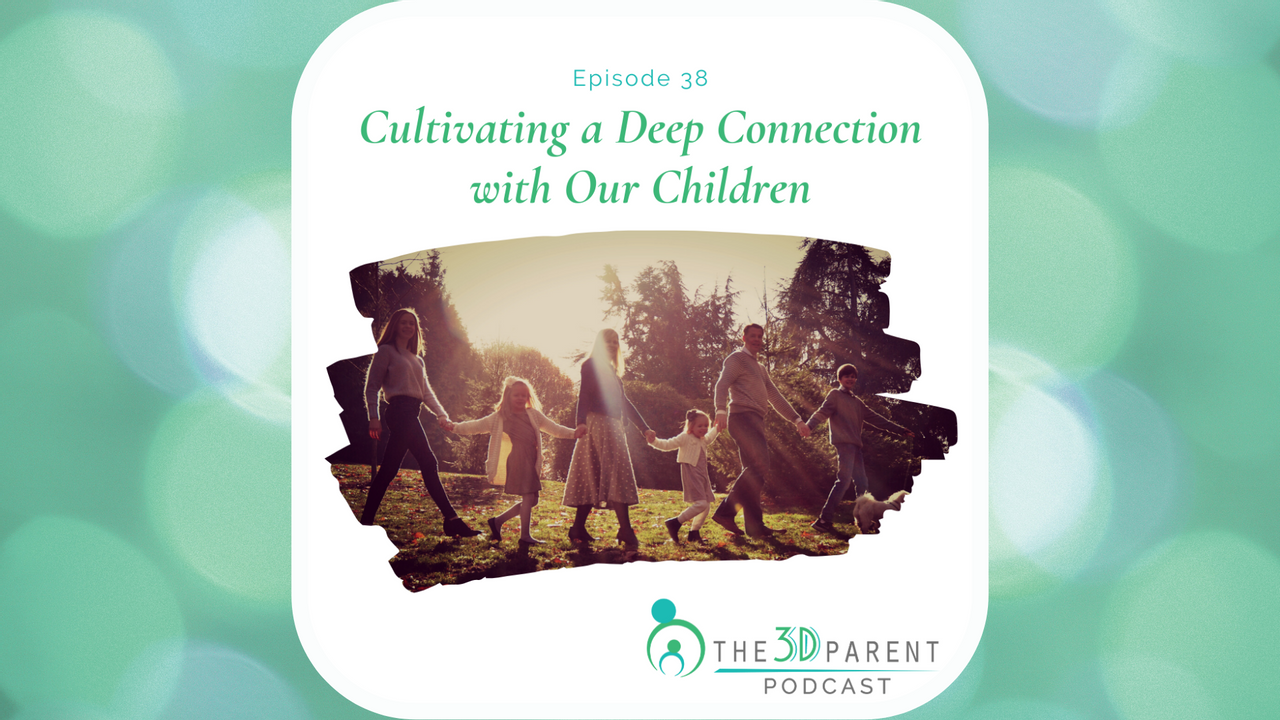Cultivating a Deep Connection With Our Children
May 18, 2021
“You need to develop a sense of curiosity about your child, and you cannot get sucked up into the emotions of what’s going on.”
On this episode of the 3D Parent Podcast, I want to go deep in discussing deep connection with your children. First we’ll look at a couple of studies regarding the different types of connection that can be used to classify young children. Then we’ll discuss in depth the different stages of attachment and what stage looks like.
Before the conclusion of the episode, I will also identify some roadblocks for you that are common challenges that come up for parents in trying to establish a connection with their child. Finally, I will give you some tips so you can start incorporating connection at every attachment stage to help you reach your goal as a parent as your child’s secret keeper.
Things You Will Learn

Episode Resources
Connection to Parenting by Pam Leo
The Whole-Brain Child by Daniel J Siegel
The Kissing Hand by Audrey Penn
Dr. Neufeld’s Six Stages of Attachment
Quotes From Episode 38
“... As securely attached children get older, they form better relationships with others, have higher self-esteem and are more flexible and resilient under stress and perform better in every aspect of life from schoolwork to peer interactions.”
“Let's raise children who won't have to recover from their childhood.” - Pam Leo
“So [Dr. Dan Siegel] states that the key to a secure attachment of their child is ensuring that they feel the four S's safe, secure, seen and soothed.”
Let's work together! I provide 1:1 support for parents motivated to make positive changing in their parenting and gain confidence and increase fulfillment in their role as parents. If this sounds like it might be what you've been looking for, book a free consultation today.
Stay connected with news and updates!
Join our mailing list to receive the latest news and updates from The 3D Parent.









